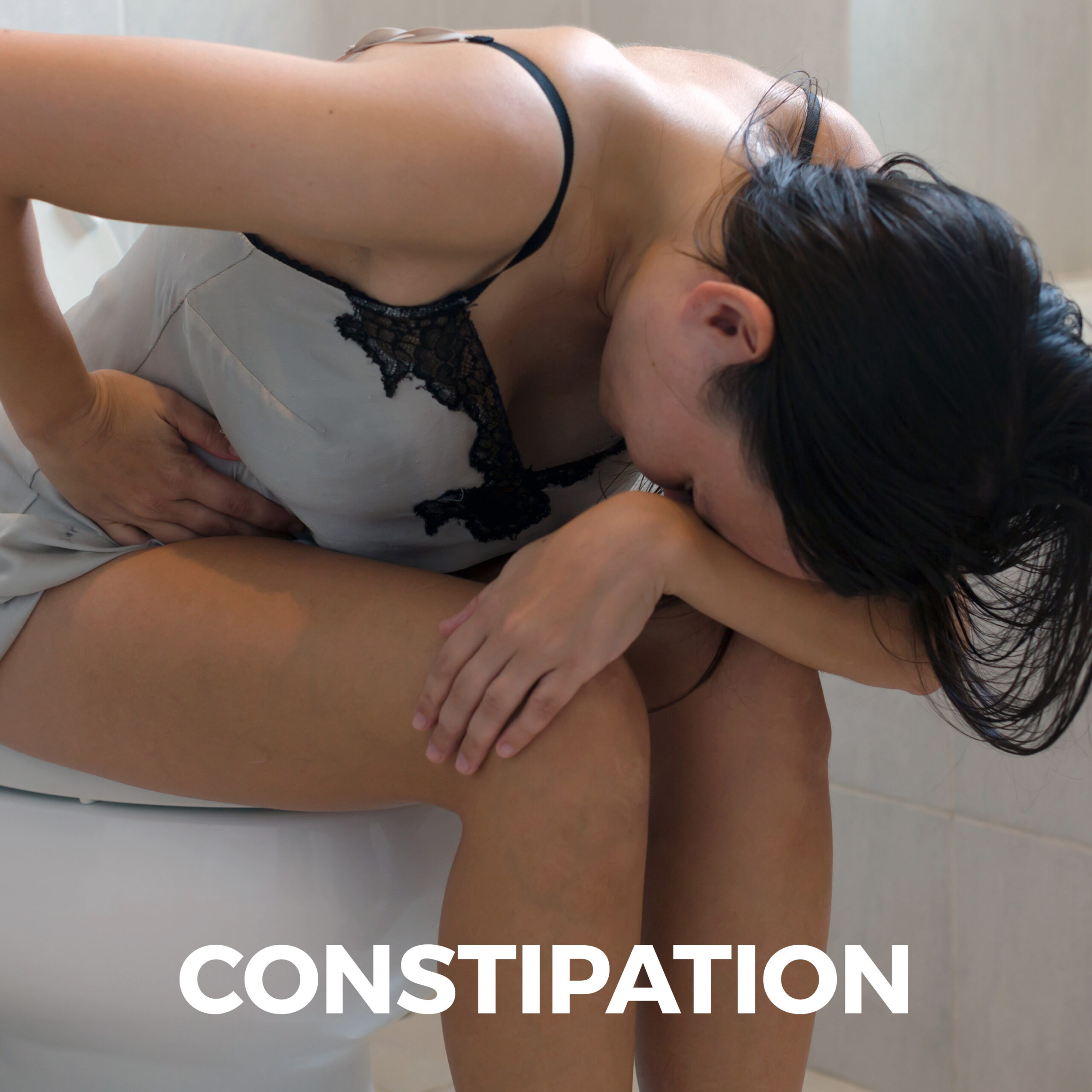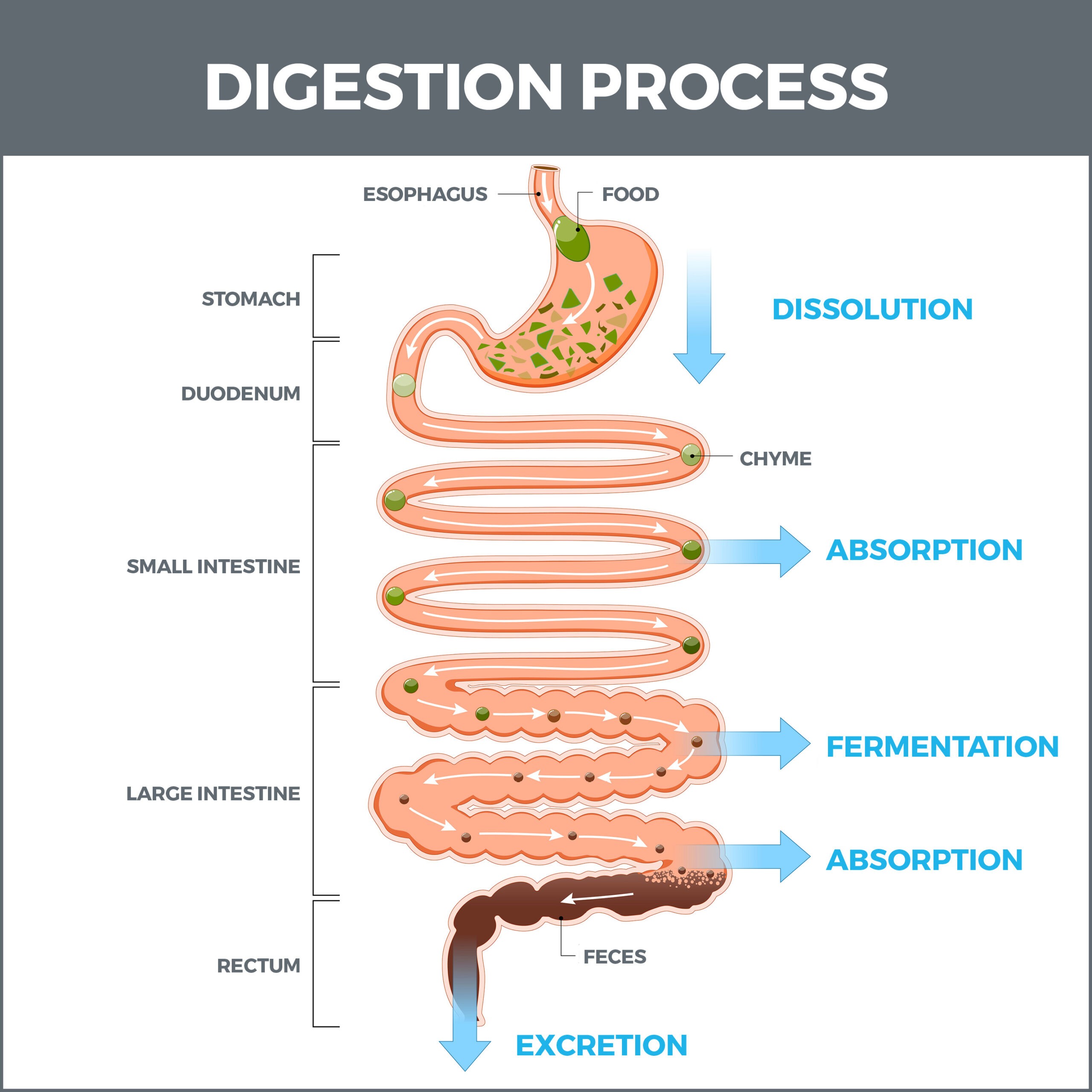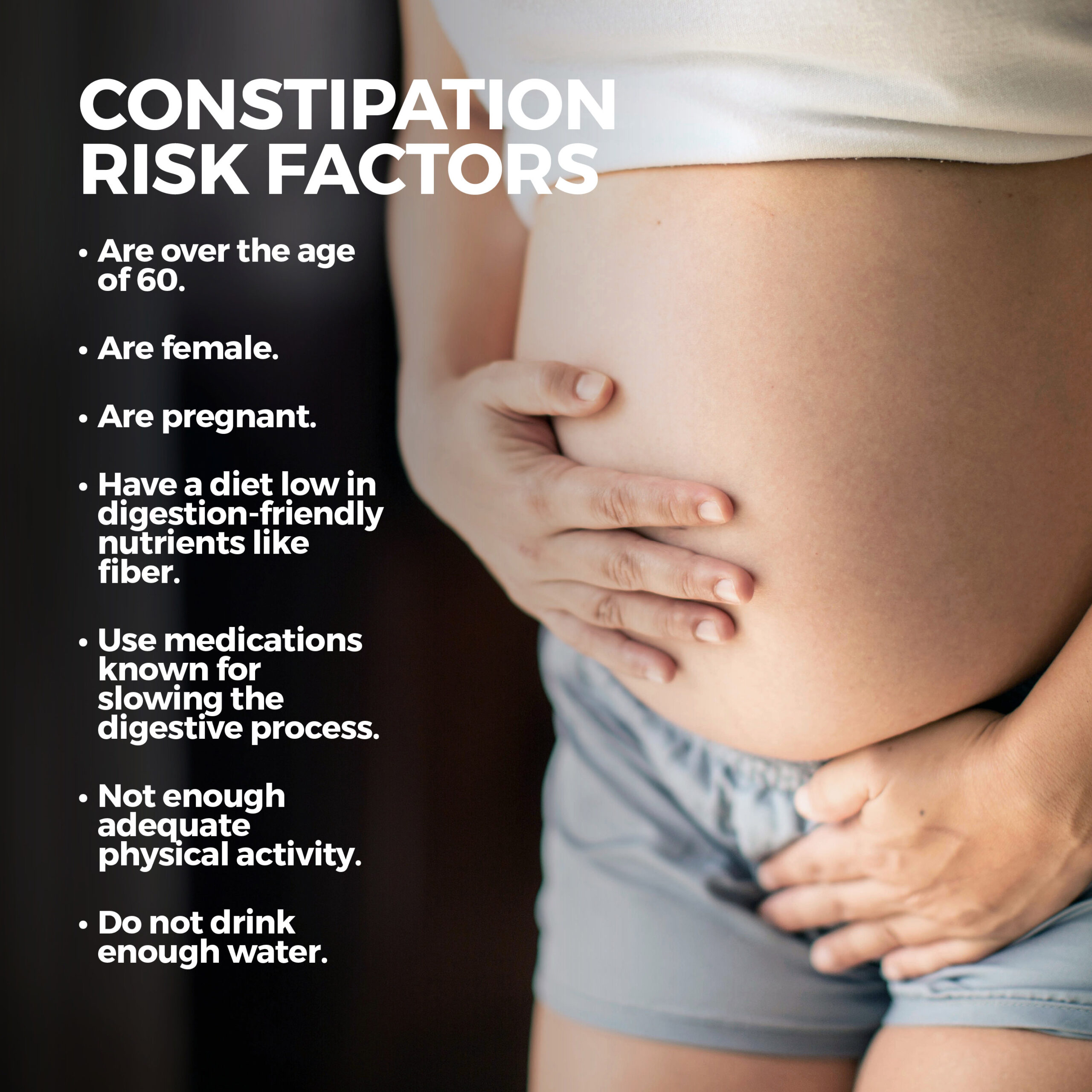
Constipation
When you can’t go, the whole world seems to stop.
Worse yet, constipation may be an indicator of something worse.
Your gastrointestinal system plays a crucial role in helping your body carry out life-sustaining functions such as breaking down the foods you eat, absorbing the essential nutrients other systems, organs, and tissues need to operate correctly, and ridding your bloodstream of potentially harmful waste materials.
When the digestive tract is not working correctly, you might experience many bothersome and possibly detrimental physical manifestations – with constipation being a specific concern.

Overview
Less than three times a week.
That’s how the medical profession quantifies constipation – when you experience difficulties excreting fecal matter fewer than three times a week.
Constipation can also refer to painful bowel movements or straining to complete them. The issue is considered a relatively common occurrence. Everyone encounters the problem at least a few times during their lifetime.
Researchers have discovered that 16 out of every 100 Americans experience constipation on a more routine basis. Research indicates that a third of all Americans aged 60 and older deal with the matter more regularly.
Causes
Constipation is a symptom but not an illness. It results from something causing a delay in the time it takes for stool to pass through the digestive tract. Specific causes include:
- Nerve Damage – Certain ailments adversely impact the function of or damage nerves in the colon and rectum, which are key components of the gastrointestinal system responsible for forming and eliminating fecal matter. Specific sicknesses include spinal cord injuries, neuropathy, multiple sclerosis, strokes, traumatic brain injuries, and Parkinson’s disease.
- Hormonal Imbalances – Hormones are messenger chemicals instructing various bodily systems to execute specific duties. Hormonal imbalances can significantly limit your body’s ability to produce and properly process fluids. Water and gastric juices are vital to maintaining the adequate flow of stool through your gastrointestinal network. Common hormone-influencing illnesses include diabetes, an underperforming thyroid, and an overactive parathyroid.
- Digestive Tract Obstructions – Illnesses causing blockages in the colon or elsewhere along the digestive tract can result in constipation. Offending diseases might include colon or rectal cancer and inflammatory bowel disorders like ulcerative colitis and Crohn’s disease, which could alter the colon’s lining or structure.
Risk Factors
Your risk of developing constipation increases when you:
- Are over the age of 60.
- Are female.
- Are pregnant.
- Do not consume a diet rich in digestion-friendly nutrients like fiber.
- Use medications known for slowing the digestive process.
- Not enough physical activity.
- Do not drink enough water.

Your risk increases if you have an eating disorder or a mental illness like anxiety or depression.
Accompanying Symptoms
The accompanying symptoms you encounter depend on the underlying disorder. The problem often occurs in conjunction with other common symptoms such as bloating, abdominal discomfort, the feeling of sluggishness, nausea, and appetite loss.
Complications
Constipation that recurs or lingers for prolonged periods may indicate a serious illness. Such disorders could spread and possibly lead to death if not promptly diagnosed and treated.
Lingering constipation can cause other potentially serious complications such as fecal impaction, rectal prolapse, hemorrhoids, and anal fissures.
When Should Your Doctor Be Contacted?
Most cases of constipation are short-lived, do not produce serious or life-limiting symptoms, and can be corrected using simple remedies. But you should contact your doctor if you:
- Have a family history of colon or other digestive tract cancers.
- Notice blood in your bowel movements.
- Cannot pass gas.
- Have an elevated body temperature.
- Witness noticeable but unintentional weight loss.
- Experience frequent vomiting.

A trip to your doctor can be warranted if your bouts of constipation are joined by lower back discomfort, significant fatigue or weakness, and abdominal pain that does not subside following bowel movements.
Diagnosis
It is important to reemphasize that constipation is often a symptom of an underlying health concern. Diagnosis can be in-depth and occasionally time-consuming.
The diagnostic process often involves your doctor documenting your medical history. They will likely inquire about your family history of specific ailments, the medications you take, when the constipation began, and the symptoms it is accompanied by, besides your dietary and lifestyle habits.
A visual examination of your abdomen might follow medical history documentation to check for any noticeable abnormalities.
If your doctor suspects the presence of any moderate to severe illness, they might order tests such as internal imaging scans like CT or MRI, blood tests, colonoscopy, blood tests, and stool samples.
Possible Treatment Options
The treatment chosen by your doctor will hinge on the case’s specific underlying cause.
Uncomplicated incidents often end on their own or following the implementation of simple remedies such as:
- Eating a fiber-rich diet.
- Drinking more water.
- Exercising regularly.
- Ingesting digestion-friendly supplements like probiotics.
- Never hesitating to eliminate your bowels when the urge arises.

Using over-the-counter stool softeners and other constipation-alleviating medications can prove beneficial. But these drugs should be used following instructions and only for brief spurts.
Cases caused by more severe ailments may need more aggressive treatments like surgery, chemotherapy, and prescription medications.
Prognosis
Instances of uncomplicated constipation typically last for several days and might not recur, provided you observe the appropriate health practices. Pinpointing specific recovery times in those produced by underlying disorders is challenging. Time frames depend on factors such as your age, general health, the exact problem, the severity, and the treatment employed.
Prevention
Not every case of constipation can be prevented. You might reduce your risk or lessen an incident’s impact through actions including:
- Consuming fiber-rich edibles such as grain products, beans, and produce.
- Remaining adequately hydrated.
- Limiting stress as much as possible.
- Staying physically active.
Above all, you should eliminate or significantly cut your intake of overly processed foods and excessive dairy or meat consumption.
Contacting Us
Don’t let constipation inconvenience you.
Contact us today! The team of professionals at GastroMD looks forward to working with you. We are one of the leading gastroenterology practices in the Tampa Bay area. We perform many diagnostic procedures using state-of-the-art equipment in a friendly, comfortable, and inviting atmosphere where patient care is always a top priority!



